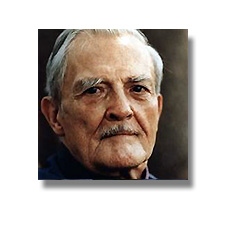
Bill O’Hanlon – author of Taproots, Solution-Oriented Hypnosis and a Guide To Trance-Land.
Stephen Brooks knows how to do effective Ericksonian Hypnosis and teach others how to do it.
Ivan Tyrrell – author of How To Master Anxiety
You are very creative with words, you talk to different parts of a patient's mind, it’s so powerful!
Kerin Webb – author of The Language Pattern Bible
You are the leaders in indirect Ericksonian Hypnosis
Igor Ledochowski – author of The Deep Trance Training Manual
Your training is unique, refined and dynamic, making each person feel an active part of the course
Dan Jones – author of Advanced Ericksonian Hypnotherapy Scripts
Your legendary hypnotherapy courses are the most highly regarded in the field
Dr Ernest Rossi – author with Milton H Erickson of the Collected Papers of Milton H Erickson
Stephen Brooks and the art of Compassionate Ericksonian Hypnotherapy surely sets the highest standard.
Adam Eason – author of The Science of Self Hypnosis
Your course was eye opening, heartfelt and transforming for me personally and professionally
RECENT BLOG POSTS
How to communicate with the unconscious mind
Ericksonian hypnotherapists prefer talking to the unconscious rather than the conscious mind. The conscious mind contains the Patient's learned limitations. These limitations often get in the way of successful therapy. After all, if the Patient knew consciously how to get better, why would they come to a therapist. Despite this obvious revelation many Patients like to participate consciously in their own healing or treatment. It is only natural that Patients should try and help themselves through conscious effort. So the therapist also has to educate the Patient about the functions of the conscious and unconscious mind and play down the former whilst praising the latter.
Who can and can’t practice hypnotherapy?
The law regarding the practice of hypnotherapy can vary enormously from country to country. And anyone wanting to train as a hypnotherapist needs to look specifically at the requirements within the area they wish to practice. For example within the USA each state can have its own criteria. In 1997 the South African government introduced an amendment to their Health Professions Act, which stated that “hypnosis and hypnotherapy” could only be offered by a licensed psychologist or mental health practitioner, effectively making the practice of hypnotherapy illegal without these professional qualifications. Yet in South Africa, as in many countries, there are still many people practising as hypnotherapists, trained to a high level in the skills and techniques of hypnotherapy, but who do not have these ‘official’ qualifications. Likewise, there are many hypnosis training schools offering courses run by trainers who are not themselves registered psychologists or mental health workers. These schools and their practitioners are having to be artfully vague in their marketing so as to avoid the word “hypnotherapist”, because, the term implies that the practitioner uses therapy. The word “hypnosis” doesn’t seem to be such a problem however. Back in 1997, stage hypnosis was also made illegal, but
Age Regression
Age regression is the reliving of an early life experience with no conscious awareness of any future realities beyond the time frame being experienced and some Clients are able to experience a total reliving of an early life experience. This involves a complete dissociation from any other references to adult life. The Client actually believes that they are the younger self. They see, hear and feel everything that the younger self saw, heard and felt. Whilst experiencing this they have no awareness of any future life. They have amnesia for the time following the age they are currently experiencing. Quite often, Clients need to be trained to have a total dissociation in this way. This training can take considerable time in some cases and one should question whether it is really necessary. Most psychological problems can be helped without the Client experiencing a complete regression. Usually a revivification is enough. In experimental work or investigative hypnosis where the therapist is attempting to uncover memories of some deep trauma it may be necessary. Generally speaking, is satisfactory for dealing with most problems. There are, however, some talented subjects who are able to regress quite spontaneously without much effort. When presented


